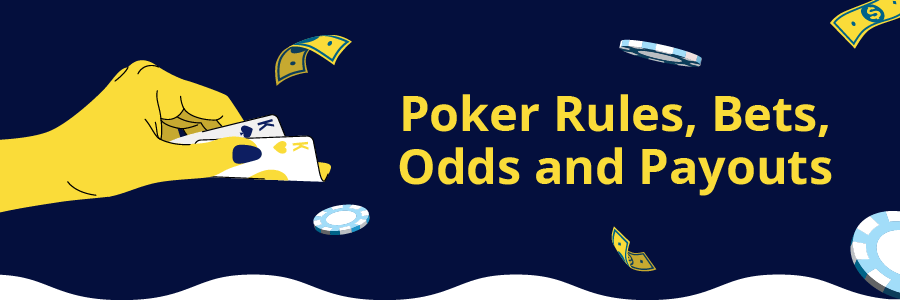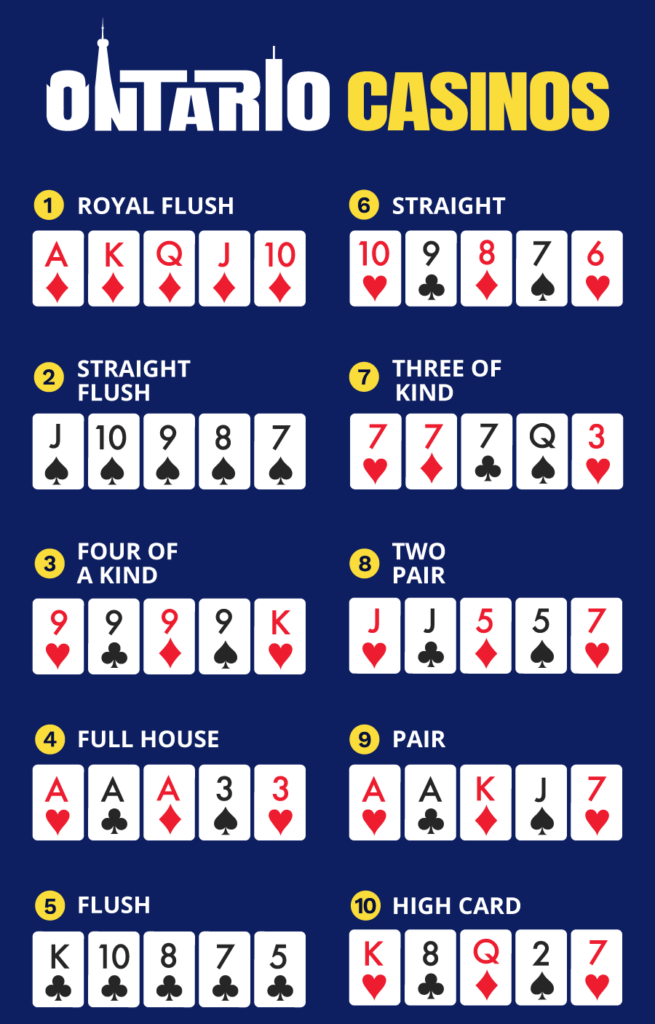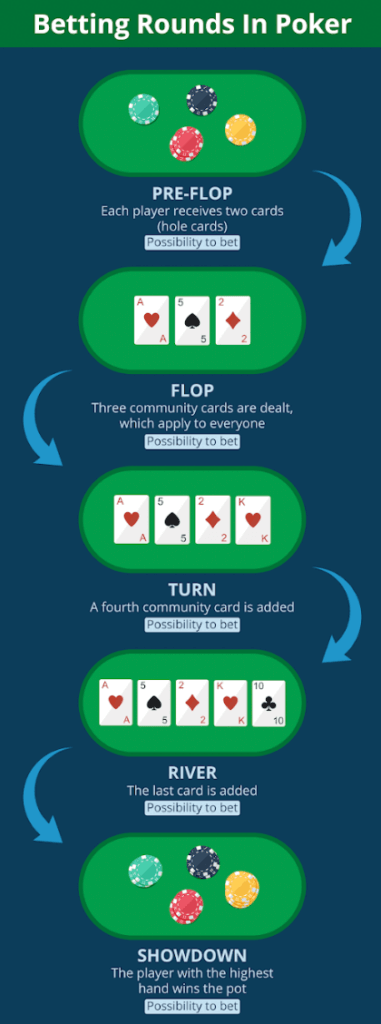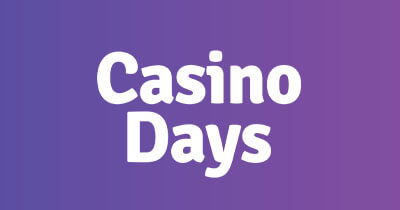Poker Rules, Bets, Odds, and Payouts
Your Path to Poker MasteryUnlock the secrets of poker in Ontario and elevate your game. Discover the poker rules, bets, odds, and payouts that will give you the winning edge. It's time to dive into the world of poker with confidence!

Master Poker Rules
Poker— the card game of skill and strategy, has captivated players for generations, drawing enthusiasts to glamorous casinos and online platforms. In this guide, we’ll unravel the intricacies of poker rules, providing you with the knowledge to master this game of wits and chance.
The Objective
The primary objective in poker is to win chips or money from your opponents. It’s achieved by either holding the best hand at showdown or convincing your opponents to fold their hands, conceding the pot to you. Successful poker players combine skill, strategy, and psychological insight to accomplish this goal, making it a thrilling and dynamic game of both chance and skill.
Poker Hands Ranking
Understanding poker hand rankings is crucial for any aspiring poker player. It’s the foundation of decision-making and assessing the strength of their hand relative to their opponents. By knowing these rankings, players can make informed choices about when to bet, raise, call, or fold, ultimately influencing their success at the poker table.
Know the strength of your hand down below!

Pre-flop, Flop, Turn, River, Showdown

Popular poker variants like Texas Hold’em involve steps and betting rounds. These key phases shape the game:
♠️ The pre-flop is the initial stage of a hand. Players receive their hole cards and make their first betting decisions before the community cards are dealt.
♠️ Flop – three community cards are revealed simultaneously, giving players extra information about their hand’s potential and influencing their betting decisions as the hand progresses.
♠️ The turn, or the fourth community card, can dramatically alter the course of the hand, completing or improving players’ hands.
♠️ The river is the final community card dealt, completing the five-card board players can use to form their best hand. This card often determines the outcome of the hand, prompting the last round of betting and leading to a showdown.
♠️ Showdown – Players reveal their hole cards and compete to determine the winning hand. It’s the ultimate test of skill and strategy, as players must assess the strength of their hand and make the best possible combination to claim the pot.
Dealer Button
The dealer button is a small token that designates the player currently acting as the dealer for a particular hand. It determines the betting order and helps identify which players are in the small blind, big blind, and other positions.
Big and Small Blinds
The small blind and big blind are mandatory bets placed by the players sitting to the left of the dealer button before each hand begins. The small blind is typically half the minimum bet for the hand, while the big blind is equal to the minimum bet, ensuring there’s some money in the pot to kickstart the action and encourage strategic betting.
No Limit, Pot Limit, and Limit – Explained
The different poker variants come with particular betting structures:
- No Limit: Players can bet any amount, creating suspense and strategic opportunities. It’s the most popular way to play Texas Hold’em.
- Pot Limit: Bets are restricted to the current pot size, offering a middle ground between No Limit and Limit. Players cannot go ‘All In’ but push the pot value significantly in a single hand.
- Limit or Fixed Limit: Bets are fixed and agreed upon beforehand, demanding careful poker odds calculation.
Rule Variations
Texas Hold’ Em might be the first thing that comes to mind when we think about poker. However, we must recognize the different poker variations that fall into three categories: Draw Poker, Stud Poker, and Community Card Poker. Texas Hold ‘Em is an example of Community Card Poker.
While basic poker rules apply universally, some will vary depending on the poker variant. For example:
- Draw poker conceals all cards, creating an element of secrecy and surprise in each hand.
- Low-ball poker takes an unconventional approach to hand rankings, where the lowest possible hand emerges victorious.
- Poker games can adopt distinct betting rules, falling into categories such as No Limit, Pot Limit, or Fixed Limit, each shaping the betting dynamics.
- Certain poker variations introduce wild cards and unique regulations, adding an exciting twist to the game.
- Poker games can vary in table size and the maximum number of participants allowed, impacting the overall strategy and interaction.
☞ It’s worth noting that ties or draws are also possible, which might catch some players off guard.
Types of Bets in Poker
The various bet types in poker serve a specific purpose. Like poker strategy, understanding when to employ them is crucial for success.
Call in Poker
To ‘Call’ a bet means to match the current bet to stay in the hand.
Raise in Poker
Raising a bet in poker involves increasing the wager already placed. It signals confidence in your hand and pressures your opponents into folding or committing more chips to the pot.
Fold in Poker
Folding is the decision to forfeit your hand. And by abandoning your participation in the current round, you save your chips for future favorable opportunities.
Poker “All-in”
Going “All In” is a bold move where a player bets all of their remaining chips, committing to the outcome of the current hand with the potential for a high-stakes showdown.
Poker Odds and Payouts
Poker odds and payouts are critical aspects of the game. Understanding these probabilities and potential winnings allows players to make informed decisions and maximize their success at the tables.
| Outs | Flop to Turn | Turn to River | Turn and River |
|---|---|---|---|
| 20 | 1.35 to 1 | 1.30 to 1 | 0.48 to 1 |
| 19 | 1.47 to 1 | 1.42 to 1 | 0.54 to 1 |
| 18 | 1.61 to 1 | 1.56 to 1 | 0.60 to 1 |
| 17 | 1.77 to 1 | 1.71 to 1 | 0.67 to 1 |
| 16 | 1.94 to 1 | 1.88 to 1 | 0.75 to 1 |
| 15 | 2.13 to 1 | 2.07 to 1 | 0.85 to 1 |
| 14 | 2.36 to 1 | 2.29 to 1 | 0.95 to 1 |
| 13 | 2.62 to 1 | 2.54 to 1 | 1.08 to 1 |
| 12 | 2,92 to 1 | 2.83 to 1 | 1.22 to 1 |
| 11 | 3.27 to 1 | 3.18 to 1 | 1.40 to 1 |
| 10 | 3.70 to 1 | 3.60 to 1 | 1.60 to 1 |
| 9 | 4.22 to 1 | 4.11 to 1 | 1.86 to 1 |
| 8 | 4.88 to 1 | 4.75 to 1 | 2.17 to 1 |
| 7 | 5.71 to 1 | 5.57 to 1 | 2.60 to 1 |
| 6 | 6.83 to 1 | 6.67 to 1 | 3.15 to 1 |
| 5 | 8.40 to 1 | 8.20 to 1 | 3.93 to 1 |
| 4 | 10.75 to 1 | 10.50 to 1 | 5.06 to 1 |
| 3 | 14.67 to 1 | 14.33 to 1 | 7.00 to 1 |
| 2 | 22.50 to 1 | 22.00 to 1 | 10.90 to 1 |
| 1 | 46.00 to 1 | 45.00 to 1 | 22.26 to 1 |
House Edge in Poker
The house edge in any casino game refers to the statistical advantage a casino or house has over players. It’s essential to know how it affects the odds and potential payouts and how they help players make informed decisions and pick games with better odds.
How to Play Poker – Breakdown of a Round

Let’s break down a typical round of poker. Specifically, Texas Hold’em, step by step:
Step 1: Fund Your Balance
Choose your payment method and ensure you have enough funds.
Step 2: Place Your Wager
Understand the table’s minimum and maximum bets, and always bet responsibly. Play for entertainment and not as a way to make money.
Step 3: Deal Hole Cards
The dealer distributes two cards face-down to each player.
Step 4: Create Combinations
Use your Hole Cards and community cards to form winning combinations and put your favorite poker strategy into play.
Step 5: Showdown
Place your bets based on your hand’s strength. If multiple players remain, reveal your cards to determine the winner.
Step 6: Collect Your Winnings
Claim the pot if you hold the highest-ranking hand. Note that there could be different payouts specific to the variant played.
Poker Unveiled: Your Path to Success
Mastering the rules, bets, odds, and payouts in poker is your ticket to success. With this comprehensive guide, you can navigate the thrilling poker landscape, choose your poker variant, and play confidently.
For a safe and top-notch poker experience, explore our recommended Ontario casinos, each offering diverse poker variants and betting options to suit all players.





